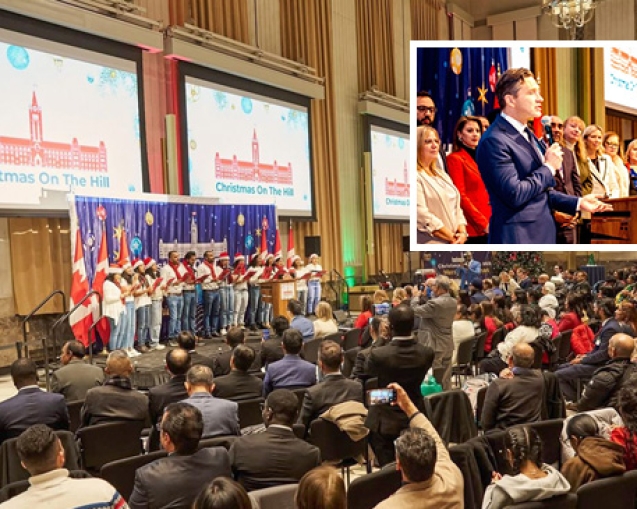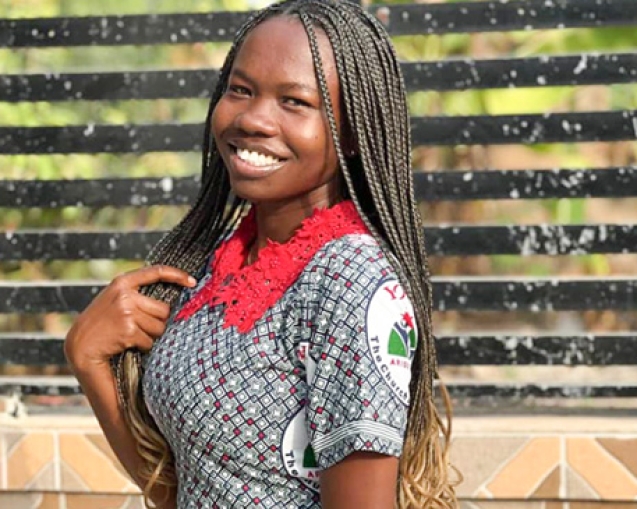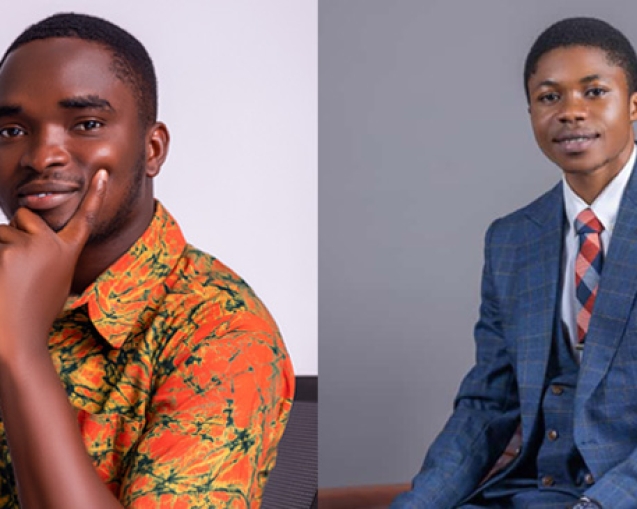Abstract
What classical Pentecostals appropriate that enables their unparalleled response to missions has been identified as the baptism in the Holy Spirit. This largely informs the emphasis placed on this pneumatic phenomenon. Believers are strongly encouraged to desire this unfailing grace bestowed by Christ. Often special meetings are organised to seek for this encounter usually through prayer with laying of hands of church leaders on those who seek this experience. The usual proximity for the practice and the various bodily contacts especially the imposition of hands of the minister of the baptism on the recipient has been limited by the present global pandemic. Within a pandemic in which medical sciences put restrictions on the means through which this central praxis of Pentecostalism is carried out, this important practice by which Pentecostals receive power for kingdom work faces crises. This study uses a mixed designed mostly within The Church of Pentecost (CoP) to show how the pandemic influences the baptism in the Holy Spirit with respect to the means by which the baptism is imparted by human agents. The study reckons that the pandemic had a negative bearing on this Pentecostal distinctiveness. It recommends that the Holy Spirit and Christ, the baptiser in the Holy Spirit cannot be undermined by the COVID-19 pandemic with its limitation on bodily contacts and its tenet of social distancing. Emphasis should be placed on other means of receiving the baptism in the Holy Spirit by learning from the Bible and from cases mainly in the history of Pentecostalism in Ghana. This would enable the Pentecostal practice of the baptism in the Holy Spirit for continual Pentecostal power notwithstanding pandemics of this nature.
Introduction
Pentecostalism since its renewal at the turn of the 20th century has grown to become a force to reckon with in world Christianity. The movement has been distinguished as a “third force in Christendom.” The Pentecostal movement has made incursions into diverse Christian traditions. Today, Professor Cephas Narh Omenyo could speak of “Pentecost outside Pentecostalism.” Dr. Alfred Koduah also talks of pentecostalisation of Christianity in Ghana. The Pentecostal fire keeps on burning its way into various Christian traditions and advancing Christian missions. With the realization by many scholars, both in and out of Africa that the heartland of Christianity has shifted from the West to the southern hemisphere, much of the growth is to be found within Pentecostalism. Thus especially in Africa, South of the Americas and Asia, Pentecostals are on the move preaching the gospel to the ends of the earth. In fact, they are giving hope to the Euro-American West due to their efforts in “reverse mission” to the Western places.
This fervency and committed response to missions is due to a distinctive experience with the Holy Spirit in which one becomes empowered for service. This is mainly based on Matthew 3:11; Luke 24:49; Acts 1:5, 8, 2:1-18, 8:14-17 among others. This experience called baptism in the Holy Spirit evidenced by speaking in tongues and operation in spiritual gifts has been the heartbeat of modern Pentecostals since the tail end of 1900. The dictum of belief in this regard goes like this, “that in the apostolic times, the speaking in tongues was considered to be the initial physical evidence of a person having received the baptism in the Holy Spirit.” The outburst of the Pentecostal movement really took off in 1906 and the movement knew no bounds since then.
This essay shall take a brief look into the Pentecostal teaching of Holy Spirit baptism, consider the praxis of the baptism in the Holy Spirit and its implication for the current global pandemic. Data were collected using written interviews of 7 classical Pentecostal pastors; the years 2018, 2019 and 2020 field statistical progress reports on the baptism in the Holy Spirit collected from 20 administrative districts of the CoP in the Greater Accra region; and by participant observation. These would be analyzed towards assessing the progress of the baptism in the Holy Spirit in the face of the COVID-19. The 2018 and 2019 reports would be compared to that of 2020, the year of the pandemic. Using cases from the Bible and church history, other means of receiving the baptism in the Holy Spirit against the traditional practice of receiving the experience would be explored. These usual ways have been seriously compromised by the pandemic. I shall not delve into the history (emergence and progress) of the Ghanaian Pentecostal movement here. “Baptism in the Holy Spirit” and “Baptism with the Holy Spirit” have been used interchangeably in this essay.
“Second Blessing”
Pentecostal pneumatology is a fast-developing field of theology. This is partly as a result of the special attention given to the Holy Spirit by Pentecostals. It may seem at first sight that in salvation, Pentecostals place more importance on the Holy Spirit. Actually, Christ is the centre of Pentecostal teaching. As Keith Warrington, a New Testament scholar would put it, “Pentecostalism is pneumatologically Christocentric.” Dale Bruner’s assertion that Pentecostal theology is “pneumatobaptistocentric” is flawed. Pentecostal theological thinking revolves entirely around Christ through the empowering presence of the Holy Spirit which is bestowed by Christ.
For Pentecostals, the role of the Holy Spirit in salvation does not end with the rebirth experience. Beyond conversion-initiation of a person into Christ, there is another experience with the Holy Spirit. This Pentecostal theology emanates out of the setting of the Holiness Movement in which spirit baptism was seen as a sanctification experience towards perfection in Christ. This baptism in the Holy Spirit took a new understanding in the classical Pentecostal movement. This overshadowed the erstwhile interpretation as sanctification. In the new understanding, the baptism empowers the disciple of Christ for ministry in the kingdom of God.
In salvation, the Holy Spirit enables the regeneration of a person who has repented, come into faith in Christ and confessed the Lordship of Christ. The spirit is bestowed upon the person to transform the person into a new creation. Subsequent to this is a post-conversion experience with the Holy Spirit. Here, the Christian noticeably encounters the Holy Spirit. This “second blessing” is a nerve centre of Pentecostal thought and practice. Pentecostals have lived up to expectation per their claim of power after this experience. How do they seek this blessing in practice?
The Pentecostal Distinctive Practice of Baptism in the Holy Spirit
In classical Pentecostal churches, special times are set aside for prayers to seek the experience. This is announced to the church earlier on. It is sometimes accompanied by fasting. Apart from these special times, baptism in the Holy Spirit may become necessary in any church meeting due to the leadings of the Holy Spirit. The church leaders may be moved to lead the church to pray for the experience. This Pentecostal practice is an automatic part of conventions, gospel crusades and rallies. These are reported on by church leaders to their immediate superiors. Those who do not have a show of an appreciable number of people receiving the baptism for the period under review are queried. The power that the experience brings and the accompanying evidence incites many people to seek the experience. In this practice, “tarry meetings” are used to engage the Holy Spirit in deeper depths. The mindset of Pentecostal Christians, their expectation and the consequent result are well captured in this Pentecostal classic by E. C. W. Boulton:
Tarry for the Spirit
He shall come in showers,
Energising wholly
All your ransomed power;
Signs shall follow service
In the Holy Ghost,
Then the Church of Jesus
Prove a mighty host
On, then, Church of Jesus,
Claim your Pentecost;
God shall now baptise you
In the Holy Ghost
The meetings proceed with relevant sermons expounding on the baptism. These sermons are usually accompanied by testimonies. The sermons are interjected with spontaneous singing and shouts of hallelujah. A key aspect of this ministration is to explain to the congregation that the baptism gives the Christian power to witness, and enables the Christian to live a holy and victorious Christian life. It is taught that the physical evidence of the baptism in the Holy Spirit is speaking in tongues or other languages. These tongues may be known languages as in Acts 2:4-12 or mysteries according to 1 Corinthians 14:2. The preachers with a certain kind of enthusiasm would inform the congregation that “your tongue would change when you receive the baptism.”
The sermon is followed by hot Pentecostal songs about the Holy Spirit amidst drumming and clapping. The way the singing is done in these services seems to suggest that it is in this ecstatic environment that the Holy Spirit moves and get people baptised in him. Was this the case in the upper room on the “Day of Pentecost?” The prayer leader in many instances would invite the congregation especially persons that are yet to receive the experience to leave the pews and move forward. This is usually to give more space for people to comfortably pray. Frenzied happenings are expected during the prayer sessions so space is needed. The people are instructed to queue up in an orderly manner. This is to allow the church leaders to move among them freely to minister the baptism. Those who have received the baptism are encouraged to pray for themselves and for the ones who now seek the experience. The seekers are, in many instances, urged to pray and also keep on saying “Jesus, Jesus” in anticipation of the baptism.
After much prayer the leaders of the church especially the elders go and walk among and people to pray for them. They go to impart the baptism in the Holy Spirit. This ministration comes in diverse ways. One would often hear the prayer leader say, “the elders would now come and lay their hands on you.” Laying of hands as a means by which the baptism is done is not exhaustive. Other actions are seen being used for the ministration. Key methods used include breathing on seekers, putting fingers in their ears, pointing a finger on the forehead, holding the shoulders with two hands, putting hands on the eyes, raising the chin, placing the hands over the ears, holding the hands, rubbing the face with the hands, and putting hands on the chest. Many fall under the power of the Holy Spirit with shouts, groaning and speaking in tongues.
Whilst we can say that all these resonate with African primal religion, it is found in classical Pentecostal “Holy Spirit prayer sessions” not only in Africa but in the West and elsewhere. When the Holy Spirit descended at the Azusa Street in the USA in 1906, similar scenes were witnessed. The media portrayed the phenomenon at Azusa as “general chaos and a weird babel of tongues.” In this case, it was not merely African spirituality that was in the background. This way of life is to be identified with classical Pentecostals no matter where they find themselves. These methods used in the Pentecostal practice of baptism in the Holy Spirit are opposed to the protocols of the present global pandemic.
Baptism in the Holy Spirit and Medical Sciences Concerns in the Pandemic
The current global pandemic has gravely affected our everyday life. In Ghana, restrictions were imposed on the usual church meetings. On March 15, 2020, the president of the republic, H. E. Nana Addo Dankwa Akufo-Addo, in an address concerning the fight against the pandemic, imposed restrictions on gathering including church meetings. The restrictions were eased in another address on May 31, 2020. The CoP for instance directed its churches to reopen for public worship starting on or after June 19, 2020. Thus for about 3 months, churches did not meet in the usual way.
Humans are highly sociable beings. Works that drive life require that we physically interact with one another. However, the means of transmission of the SARS-Cov-19 virus which causes the coronavirus disease breaks down the human social system. Perhaps, humanity would have to be thankful for the sophisticated tools of communication made possible by advanced technology. This has helped to alleviate the negative impact.
The virus gets into the human body via the mucosal lining in especially the eyes, nostrils, and mouth. These parts of the human anatomy are opened to the air. From an infected human, the air becomes contaminated with the virus through droplets. The structure of the virus enables it to attach itself to receptors on cell surface when it gets into the human body. It later penetrates the cell surface, replicates and multiply.
Considering how the COVID-19 virus is spread from one person to another, the various methods used in imparting the baptism in the Holy Spirit, as observed from practice, have been crippled. Medical sciences preventive measures of keeping a social distancing of not less than two arm’s length, not touching the eyes, nose or the mouth among other protocols eliminate the highly used bodily contact methods in the impartation. Meanwhile, these supposed means of receiving the baptism are deeply rooted in the minds of Ghanaian Pentecostals.
Data Analysis
7 classical Pentecostal pastors selected from 5 different administrative regions of Ghana; Northern, Eastern, Volta, Bono East and Greater Accra regions have been interviewed. The interview questions were 10 in all; 5 closed-ended and the other 5 opened-ended. All of them (100%) were very much aware of the COVID-19 protocols. Within this pandemic, all the pastors organised sessions of Holy Spirit Baptism. This points out the important place of the baptism in the Holy Spirit in Pentecostal thought and practice. All of the interviewees observed the protocols in their practice of the baptism. Classical Pentecostal church leaders are increasingly becoming considerate of medical sciences though divine healing is a centre of Pentecostal theology. They have rightly given a place for medical science in their doctrine of divine healing. In heeding the protocols, the prayers for the baptism were done by the leaders for the seekers from a distance. Concerning how the baptism was imparted, all the pastors responded that it was done by “praying for the seekers of the baptism from the platform as they [the seekers] stand in their pews.” 4 of the interviewees were of the view that the laying of hands impact on whether a person gets baptised or not. The other 3 responded otherwise.
From the year 2018, reports from 20 districts of the CoP that have been selected in the Greater Accra region, the cumulative number of persons who received the baptism in the Holy Spirit was 2707. In the year 2019, the reports from the same districts totaled 2688. This shows a reduction by 19 (0.7%) of the year 2019 figure against that of 2018. In the year 2020, these 20 districts show 1010 as the number of people who have received the baptism. Evaluating the year 2020, the COVID-19 pandemic-stricken year, against the year 2018, a reduction by 1697 (62.7%) is observed. A reduction by 1678 (62.4%) is also seen when the figure of the year 2019 is used for comparison.
There has been a very significant reduction in the number of persons who received the baptism in the Holy Spirit? Has the frequency of the baptism services reduced? Almost all the interviewees organised a few of the baptism sessions. They pinned this on the COVID-19 protocols. One of them responded that “We are mindful of the COVID-19 protocols and the fact that at times people will have to be supported by strong deacons to avoid injuries when they are touched by the Holy Spirit.” Also, can this be pinned down on the reduction in church attendance? To a very less extent, the restrictions to church meetings for some weeks would influence this reduction. However, this study realizes that the protocols accompanying this pandemic are a more significant factor. This suggests that if the parameter of church attendance remains constant, there would be a significant reduction in cases of the baptism. This would be due to the no praying very close to seekers, laying of hands, breathing upon seekers, and putting fingers in the ears of seekers by church leaders in accordance with the protocols.
The Practice of Baptism in the Holy Spirit: Cases in the New Testament and Modern Church History in Ghana
Cases in the Acts narrative that apprise the Pentecostal teaching of baptism in the Holy Spirit with evidence of speaking in tongues present with diverse circumstances under which the baptism takes place. In the first instance in Acts 2, it was within a corporate tarry meeting that the Spirit descended. In obedience to the instruction of Jesus in Acts 1:4-5 to wait in Jerusalem for the promise of the Father God, the believers waited in prayer until they had the phenomenal experience. The immediate event which led to the baptism was most intriguing. A noise sounded like a mighty rushing wind was heard. They sighted what appears to be tongues of fire that separated and rested on each of them. It is recorded that all those gathered were filled with the Holy Spirit and began to speak in other tongues. Here, no hands were laid on the recipients of the baptism; not on their heads, shoulders, eyes, or any other part of the body.
The baptism in the Holy Spirit that took place in the home of Cornelius as recorded in Acts 10:44-46 presents with a similar case in which the family was filled with the Holy Spirit during Peter’s preaching. Apostle Peter did not use any special method that involves touching the recipients. Nevertheless, they received the baptism. To show that they have received the baptism, Peter in his narration of the event said, “As I began to speak, the Holy Spirit fell on them just as on us at the beginning. And I remember the word of the Lord, how he said, John baptized with water, but you will be baptized with the Holy Spirit” (Acts 11:15-16, NIV). Thus Peter connected the event at the home of Cornelius with the “you will be baptized with the Holy Spirit” word given to the disciples by Jesus.
In Acts 19:1-6, at Ephesus, Paul encountered a group of disciples who were not aware of the Holy Spirit not to talk of the baptism with the Holy Spirit. Paul explained issues to them and placed his hands on them. This saw these Ephesian Christians speaking in tongues and prophesying. This case as well as in Acts 8:14-19 in which the Christians in Samaria received the Holy Spirit after Apostles Peter and John laid their hands show that laying on of hands is also a means by which baptism with the Holy Spirit can be ministered. But it is not an exclusive means, of course.
Many continue to be baptised in the Holy Spirit. Church history, globally and locally showed cases. An old Methodist preacher has this to say as captured in T. L. Osborn’s The Purpose of Pentecost: “We Methodists were praying together when we heard a noise, like the sound of a rushing wind in our prayer room, whereupon we gazed with wonder as cloven tongues of fire actually appeared upon our heads. In awe and worship of God, we were caught up in a heavenly atmosphere, speaking and singing in other languages.” This experience with the Holy Spirit was not made possible by the placement of hands on these Christians.
In the CoP, there have many instances in which people received the baptism with the Holy Spirit without the physical bodies of church leaders serving as bridges through which the baptism happens. John Mensah, one of the earliest healers in the CoP (then Ghana Apostolic Church) received the baptism which he very much desired during his personal prayers as recounted in volume 1 of A History of the Church of Pentecost. It is said that he personally fasted and prayed fervently for the baptism. His day of joy came one day when he woke up around 1 a.m. to pray. As he prays, he began to speak in tongues suddenly.
Opoku Onyinah, the 5th chairman of the CoP also received the baptism through personal prayer. He narrated to me with joy how he got baptised as a young Christian. Then a Roman Catholic, he desired the baptism and got the experience eventually. He joined in a CoP prayer session during a time that Pentecostals would call “tarrying for the Spirit,” to pray for the baptism. He did not receive the experience immediately. He did not give up but continued his pursuit of the pneumatic encounter with fasting and prayer. On the last day of a seven-day fast, he went to a hide-out in a bush to pray. On his way to the place, he met another Roman Catholic who, like Opoku, was also seeking the baptism in the Holy Spirit. He requested this person to join him to pray in the bush. The two found themselves in a time of prayer. During the prayers, as he puts, “my tongue changed and I began to speak in tongues.”
James Kwaku Gyimah of Akroso, Stephen Owiredu of Brekumanso, among many other cases indicate diverse ways in which the baptism can happen. Other ways include the prayerful reading of the Bible, praying for seekers of the baptism from a distance without any bodily contact, and listening to the preaching of the word of God.
It is evident from the above that in the practice of the baptism, the Bible and evidence from the continual work of the Lord in history show that Christ, the baptiser with the Holy Spirit employs varied ways to course one to get the encounter. The methods that have become popular and the norm in Ghanaian Pentecostalism have swept under the carpet, the other ways in which the Lord can deal with his people.
The laying of hands has been revealed in the Bible as a means by which graces can be bestowed; being in ordination or special blessings. The Old Testament presents examples of this. For instance, Moses laid his hands on Joshua (Deuteronomy 34:9). Some patristic theologians took up the issue of the Spirit being given through the laying on of hands. Tertullian, Cyril of Jerusalem, Athanasius, Chrysostom, among others. Cyril of Jerusalem for example indicated that power has been designated by Christ to the Apostles to convey the Spirit through the laying of hands. Athanasius held a similar view. The interest of the church fathers on this issue was largely in the area of who qualifies to lay hands. Meanwhile, the laying of hands in Ghanaian Pentecostalism has become a baptismal rite that one who needs a baptism in the Holy Spirit has to go through. This method as a means of imparting the baptism in the Holy Spirit emerged from the cases in Acts 8 and 19.
Other methods evolved from diverse interpretations of biblical phenomena and perhaps from African primal religious practices. For example, John 20:22 in which Jesus breathed on his disciples to receive the Holy Spirit is sometimes used to justify breathing on seekers of the baptism in the Holy Spirit. On the contrary, this act by Jesus does not define a format for the baptism. Putting fingers in the ears is understood by some who ministers the baptism as a way of getting the ears of the seekers opened so they could hear from God and speak mysteries. This may have been wrongly picked up from Mark 7:32-35. More so and here too, Jesus putting his fingers in the ears of a man to heal him of deafness does not define a pattern for getting the ears of people opened whether spiritually or physically.
Conclusion
This essay has shown that baptism in the Holy Spirit, a distinctive classical Pentecostal practice has been impacted negatively by the present pandemic. The study points to the normative use of bodily contact between church leaders and seekers of the baptism in the Holy Spirit as underlining this impact. These popular methods used to minister the baptism have been undermined by the COVID-19 protocols. The methods also put in oblivion other ways by which the Lord used to baptise people with the Holy Spirit. The other means of receiving the experienced must be explored and built up in the minds of Christians. The Christian must come to grips with the fact that the Holy Spirit per his ontological nature cannot be limited by time and space. He cannot be undermined by the protocols of the present pandemic. We can be immersed in unlimited ways into the Holy Spirit by Christ. Restrictions that the pandemic placed on other aspects of church life should not limit Christ, the baptiser in the Holy Spirit. Pentecostal power must be on the go within any pandemic that may hit the world.


















